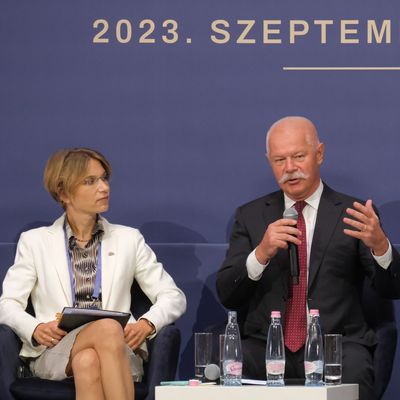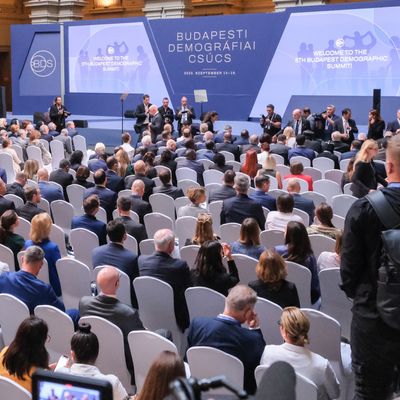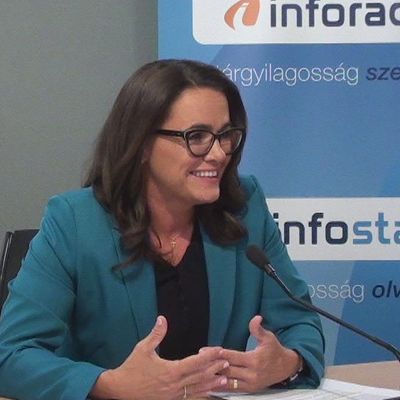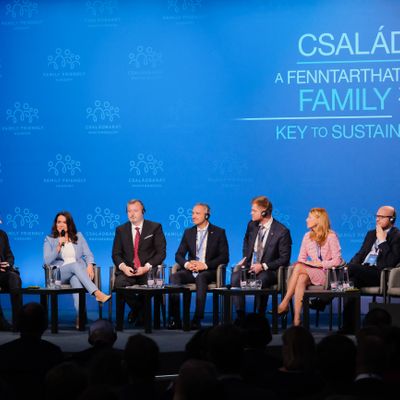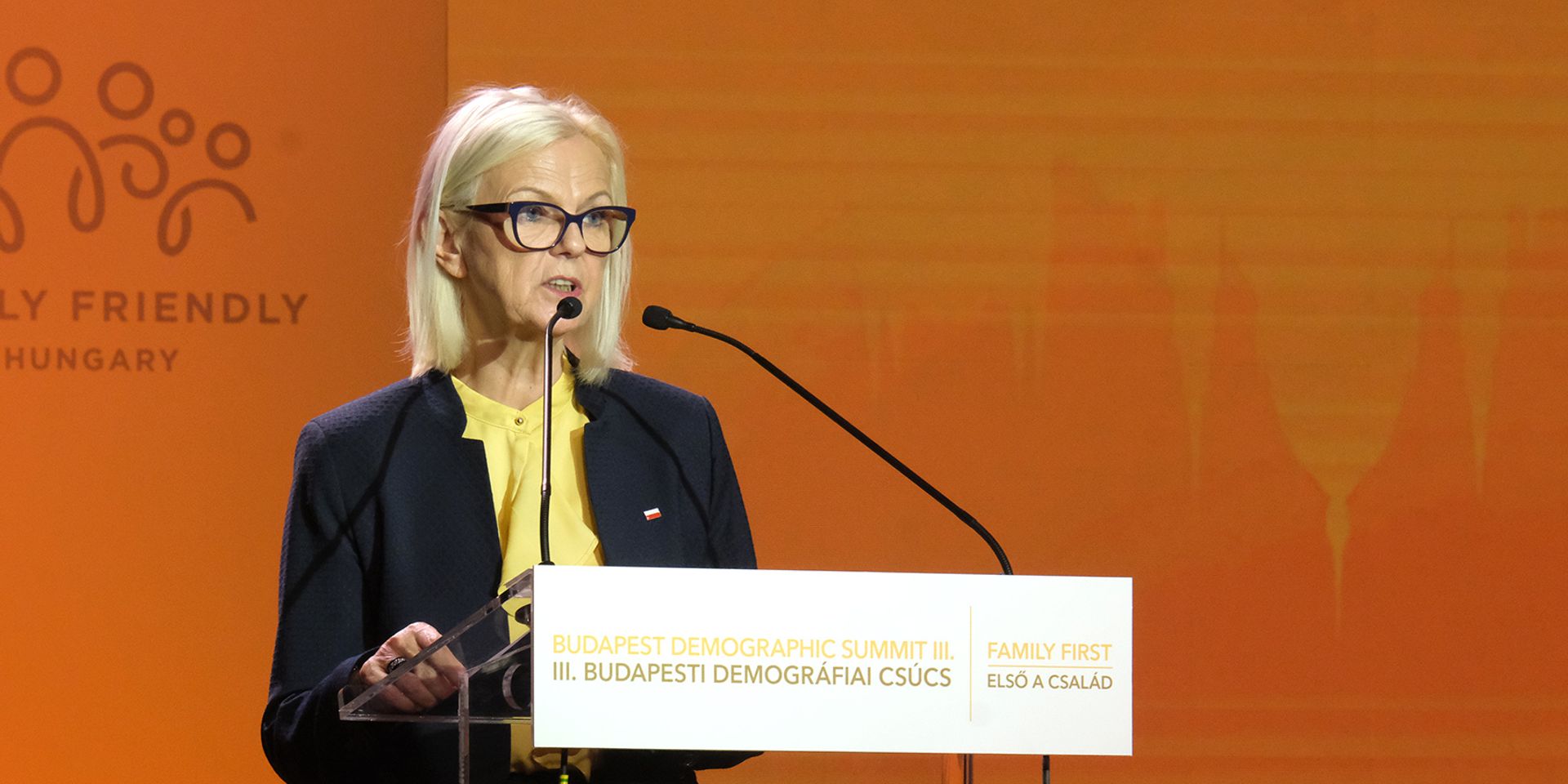
Bożena Borys-Szopa : The willingness of people to have children is also dependent on their ability to have a dignified life
Szerző:csalad.hu, fotó: Förster Tamás2019. 09. 05.Támogatások, kedvezmények
“Poland has been facing significant demographic challenges for years. Society is aging, and at the end of 2017 almost every fourth Pole was above the age of 60. By 2050 over 40% of the population will fall into this age bracket” – described the situation the Minister of Family, Labour and Social Policy of Poland at the 3rd Budapest Demographic Summit.
Bożena Borys-Szopa talked about how demographic issues posed a significant challenge to the Government. They introduced new family policy measures 4 years ago, targeting three key areas: improving demographics, fighting deep poverty amongst children and supporting families.
The ‘Family 500 Plus’ scheme is their flagship programme. Between 2016 and July this year they have spent over 77 billion PLN on supporting families.
– This programme is incredibly important in improving demographics, and we can already see the first results. While back in 2015 our childbearing index was 1.29, by 2017 it rose to 1.45. The last time we saw anything like this in Poland was in the 1990s. – emphasised the Minister. She also added that although the number of births reduced in the past 2 years, this was caused by a reduction in the number of women of childbearing age – a trend that will unfortunately continue in the years to come.
Stable economic growth coupled with low unemployment
Bożena Borys-Szopa explained that a lot of money had also been spent on childcare infrastructure, and over the past 3 years 185 thousand new places have been created in nursery schools and kindergartens. However, creating new places is not enough in itself, it is equally important for employers to develop a different mindset towards young mothers, e.g. to help them by offering flexible working hours.
– The Polish labour market is in a very good condition right now with stable economic growth and low unemployment. And, of course, the willingness of young people to have children is also dependent on how much they can have a dignified life. – stressed the Minister.
Speaking about Government measures, she also mentioned the launch of the ‘Home Plus’ programme, which offers help with housing rental fees. They have also made amendments to the taxation system, meaning that young people do not have to pay taxes until the age of 26.
– We must be able to convince young people that Poland has the potential to grow, and we can only hope they’ll take notice. – explained Bożena Borys-Szopa.
